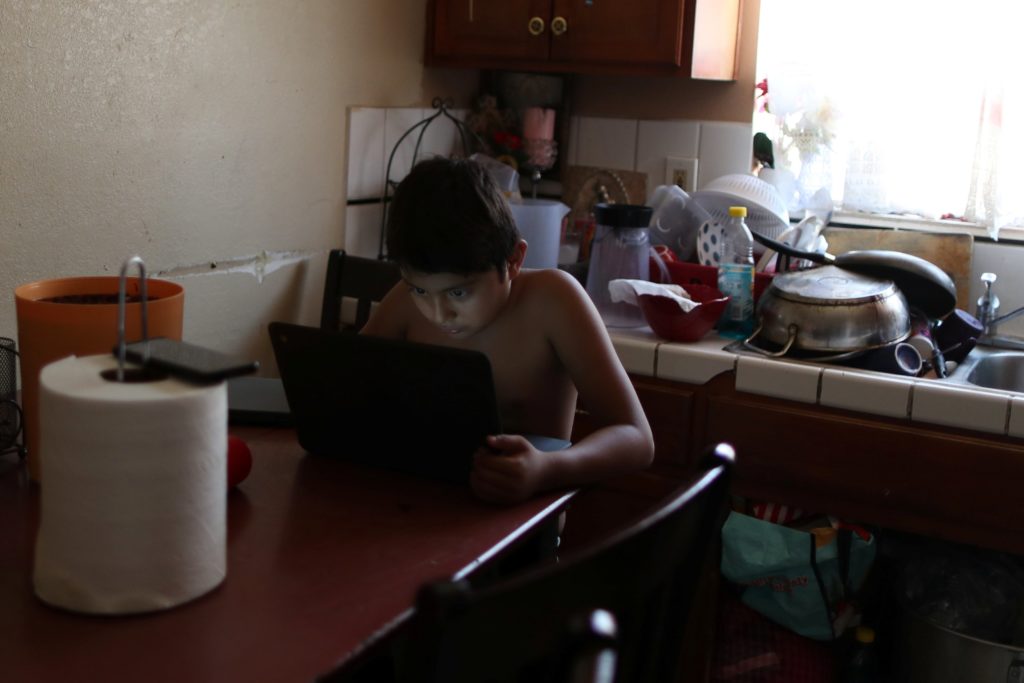As California goes, so goes the rest of the United States?
When it comes to automobile emissions, it's a lot easier for car manufacturers to make one type of gas-powered vehicle for the nation, not one kind for California with its stringent emissions rules and another for the other 49 states.
California also has been badged as the source of new trends and movements, influencing the rest of the United States.
Sometimes, it's good to be big. If California were a separate country -- and there are some who wish that were the case -- it would have the world's ninth largest economy.
It's also the most populous state, with 39.35 million people, according to the 2020 U.S. Census. Size alone can make you a trendsetter, when the state is home to 12% of the nation's population.
The latest example of potential trendsetting is the California Age-Appropriate Design Code Act, introduced into the state Legislature in bipartisan fashion, cruising to passage in both chambers in overwhelming numbers -- including a unanimous vote in the state Senate -- and signed into law Sept. 15 by Gov. Gavin Newsom.
"As a father of four, I'm familiar with the real issues our children are experiencing online," Newsom said at a signing ceremony for the measure.
The California law is stricter than anything on the books passed by Congress. For one thing, it defines a child as anyone under age 18; in the rest of the country Big Tech can consider a 13-year-old an adult.
Here are some key components to the law.
It requires companies to assess potential harm in how they use kids' data in new services or features, and to create a plan to reduce the risk before the feature is rolled out.
The bill bars companies from using minors' information in a way that the firms know -- or has reason to know -- is "materially detrimental" to their well-being, such as routing searches for weight-loss information to photos of skinny supermodels.
It also generally bans companies from collecting, selling, sharing or keeping any personal information on a kid, unless it's necessary to provide the service the kid is directly using. What's more, it keeps companies from collecting, selling or sharing precise location data for kids by default, unless it's strictly necessary for a feature that is part of a product being used -- and only then for a limited time.
The bill also requires the product to make it obvious to minors when they are being tracked, if the company allows parents or adults to track kids online.
And if there's anything considered ambiguous in the new law's language, it also has a provision to establish a working group to deliver a report to the state Legislature by January 2024 on the best practices for the law's implementation.
Will it be a headache for website designers? Sure. But they've gotten off the hook for so long on some of the most basic responsibilities for online conduct that the extra effort they'll need to exert in protecting children will ultimately seem like a breath of fresh air.
The fact that the bill passed in the home of Silicon Valley also is telling. And the example provided from automakers may prove to be instructive here, as designers are unlikely to have two different kinds of websites operating in the same country.
Some observers have already pointed to similarities suggested in the bill to other widely accepted parts of American society. For instance, there are seat belts and shoulder belts in cars for adults, and child car seats for, well, children, but both have the same intent to protect the user should there be an accident.
Likewise, there are bigger doses of COVID-19 vaccines for adults, and smaller ones for children, yet both aim to keep the coronavirus from infecting the vaccine's recipient.
Businesses complained about some provisions in the bill, and some of their concerns were reflected in the final product. One top concession was to give the company a chance to fix a violation before California's attorney general, charged with enforcing the law, goes after them with a civil or criminal complaint.
Congress has been sour for years on Big Tech but hasn't found a way to bring tech giants to heel in a way that would guarantee votes from both sides of the aisle. Perhaps the California approach is one worth considering.

